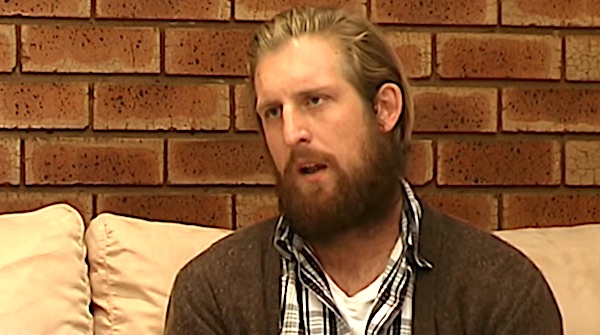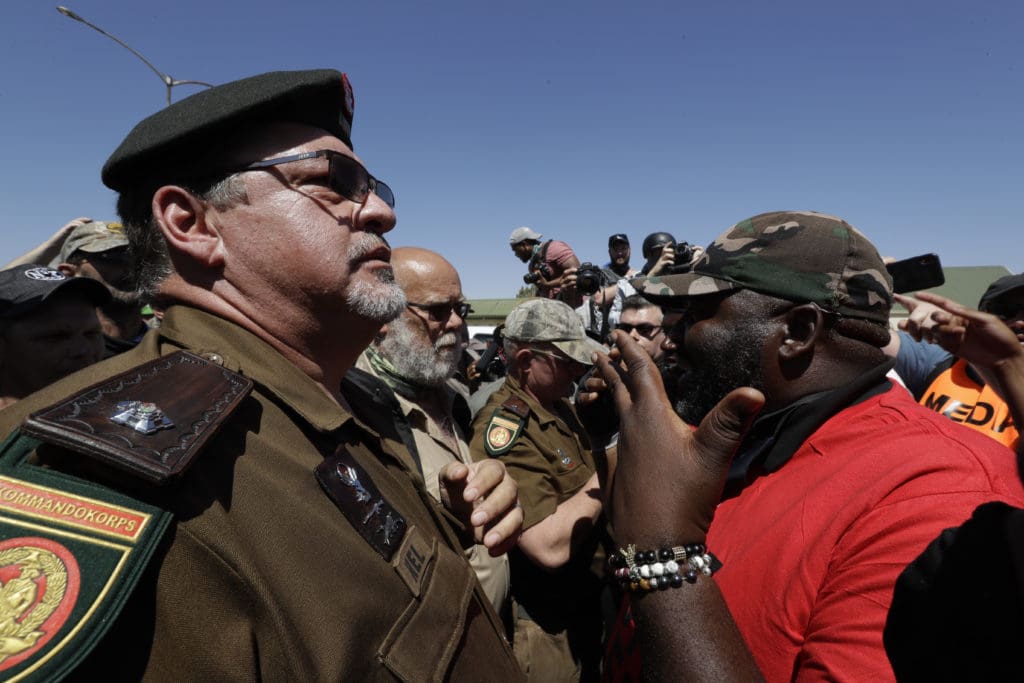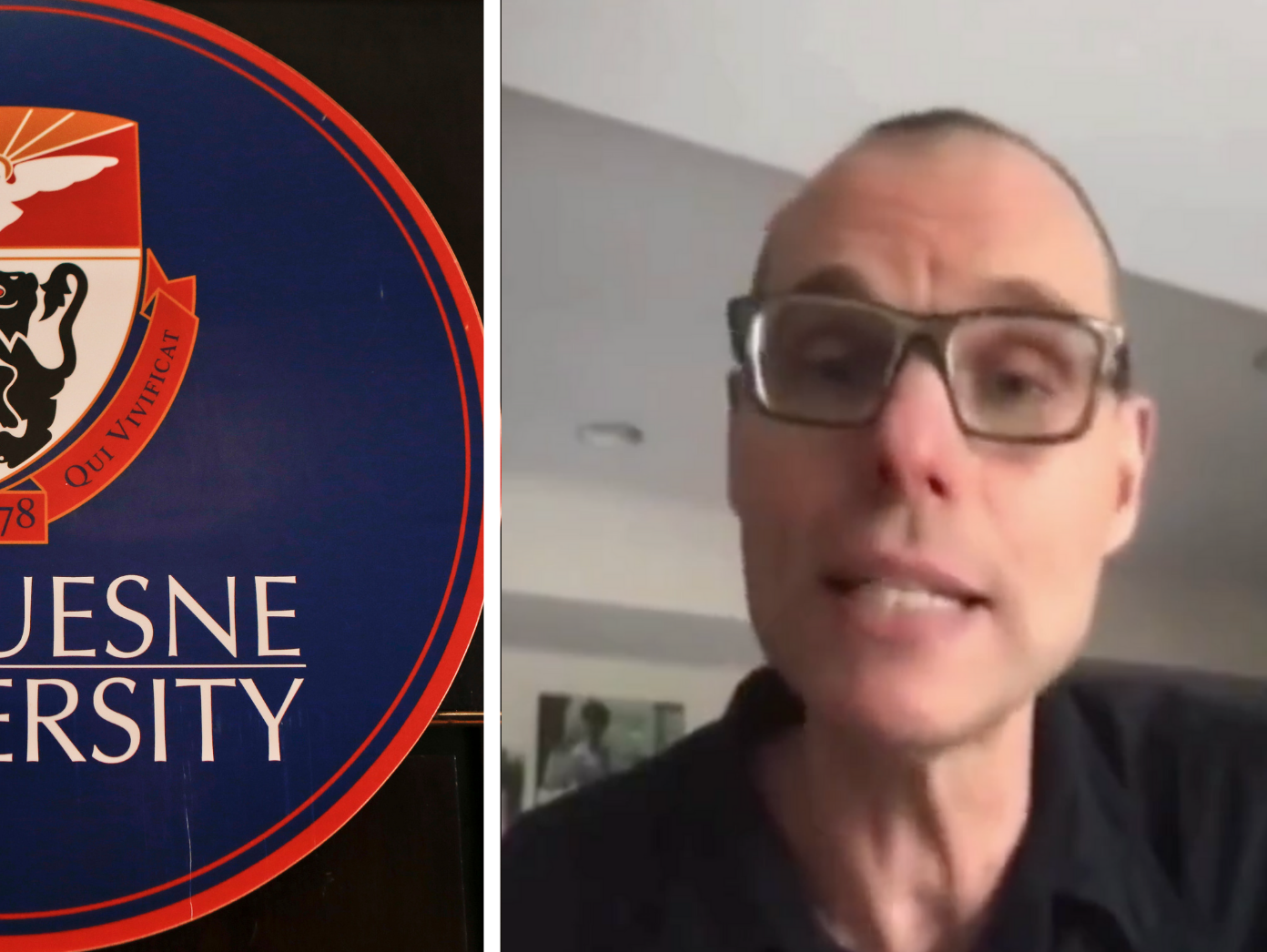A disturbing debate is stirring emotions in the United States over a lecture by a Pittsburgh psychology professor, who has brought up the tragedy of the suicide of White people in post-apartheid South Africa as a subject of discussion. The top of the presentation made by Duquesne University professor Derek Hook read: “White people should commit suicide as an ethical act”.
Hook was giving a presentation about a highly controversial study by a South African academic Terblanche Delport, at the end of which Hook concluded by saying, “Here’s the kind of crazy gambit of this talk, I want to suggest that psychoanalytically we could even make the argument that there was something ethical in Delport’s statements.”
The presentation made in June this year, entitled “Deconstructing Whiteness Toward an Anti-Racist Clinical Practice”, chose the controversial South African academic’s work as its basis for discussions. Among other deeply disturbing statements, the study asserts what Professor Hook quotes as saying. “The only way for white people to become part of Africa is to not exist as white people anymore. If the goal is to dismantle white supremacy, and White supremacy is white culture … then the goal has to be to dismantle white culture and ultimately white people themselves. The total integration into Africa by white people will also automatically then mean the death of white people, as white as a concept would not exist anymore,” continues the quote.
Delport has made similar statements in the past. According to Radio Free South Africa, he said in 2016, “[T]he only (life) purpose for Whites, specifically Afrikaners, is to await their death or to commit suicide, like the samurai falls on his short sword when he has fallen into disgrace.”
There is a notable addition to the controversy that followed the publication of the lecture online, namely how Professor Hook’s (and consequently Terblanche Delport’s) apologists have managed to derail a legitimate controversy into a “who said what” type of argument, rather than asking the glaringly obvious question as to whether posing such an absolutely immoral question as a moral dilemma is a legitimate subject of an open-ended academic debate, where participants in the inquiry can make up their own minds about the subject freely.
Hook himself tries to divert attention from this question by simply pointing out that he would never call for the suicide of White people, or anybody else for that matter, and claimed that his words were lifted out of context. His university had equally tried to whitewash the catastrophic lapse in judgment their professor made by saying, “Duquesne University is a Catholic institution that condemns any suggestion that suicide is to be advocated or endorsed in any form.” They then go on to defend their member of staff, also expressing their outrage over the fact that Hook has apparently been so badly misquoted.

Perhaps the surest sign that one of the pillars of the left-wing progressive establishment has made a terrible error of judgment is when the mainstream media rally around a personality to defend the indefensible. Apart from a number of other media outlets, Reuters stepped up the defense of Professor Hook with a Reuters Fact Check editorial, where they also pose the entirely misleading question as to whether Hook really believes that “White people should commit suicide as an ethical act”, or not. Unsurprisingly, their verdict is that he does not, and that Hook’s words were taken out of context, while he was only discussing the works of another scholar.
The entire effort to divert attention from an academic who is posing false moral dilemmas as legitimate choices for consideration is bordering on the absurd. There is indeed a good reason for the moral outrage that Hook’s entirely bankrupt line of reasoning has caused, and it should center on the question of what the trustees of an old reputable Catholic university are thinking when they allow extremist political ideologies masquerading as science to take root at a university founded on Christian principles.
What can justify interpreting the very real and tragic plight of some of South Africa’s Whites who resort to suicide because they feel disenfranchised in a deeply corrupt political system and violence-ridden society? How can Delport’s absurd views be construed as ethical, even for a moment, instead of being outright rejected as pathological, and being among the most inhuman ideologies to have been presented to mankind? How can Professor Hook conclude by saying that Delport was only a “fighter” who is perhaps too aggressive in his arguments, instead of an unequivocal condemnation of his entire line of thought?

Introducing the unthinkable into the academic discourse creates a fertile ground for moral ambivalence that will eventually discover “something good”, “something worth preserving” in the most despicable acts that humans are capable of. This is what has been done with the crime of child abuse, with terrorism, or with a long line of exceptionally destructive human behavior, that is increasingly leading to examples of a victim-perpetrator role reversal. This is how the South African victims of a very complex social change can be so dehumanized, and seen only as bearers of a political stigma who have perhaps, and only for the sake of academic inquiry, within the strict limits of psychoanalytical inquiry, done the right thing in deconstructing their whiteness alongside their physical self.





